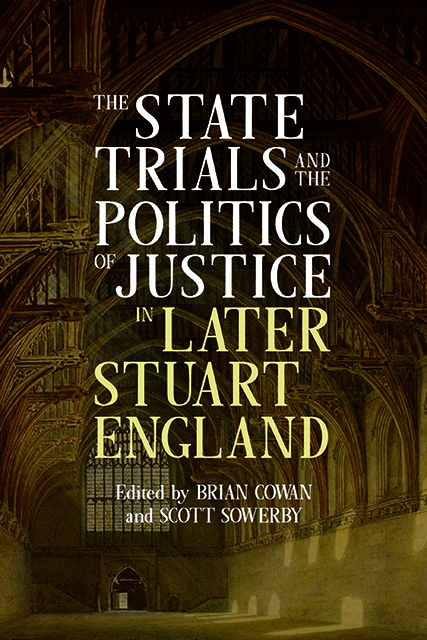5 - Sham Plots and False Confessions: The Politics of Edward Fitzharris’s Last Words, 1681
Published online by Cambridge University Press: 14 January 2023
Summary
The struggle between king and Commons over the jurisdiction of the trial of Edward Fitzharris – would he be tried in parliament, or by common law? – constituted the last pitched battle of what is traditionally known as the Exclusion Crisis, and fills many pages of the State Trials. However, Edward Fitzharris himself, an Irish Catholic court spy briefly championed by Shaftesbury and his supporters as a Popish Plot witness, remains an elusive and ambiguous figure. In his 1689 remarks on Fitzharris’s case, Sir John Hawles ‘wondred’ why the ‘Tryal and Condemnation of a Person who was confessedly an Irish Papist, should be complained of’, let alone why there was such ‘a great struggle between the Whigs and Tories… for hanging or saving’ a man ‘both agreed… deserved to be hanged’. Over fifty years ago, J. R. Jones characterised ‘the case of Fitzharris’ as a ‘mystery of the period which, like the death of Godfrey, has never been satisfactorily explained’. Jones never followed through on his intention to do further research on the subject, possibly deterred by the sheer number of ‘charges and countercharges’ which, in Richard Greaves’ words, ‘make this case somewhat murky’. It is perhaps not surprising that modern accounts of the Exclusion Crisis and the Popish Plot have tended to pass quickly over this episode, relegating Fitzharris to something of a footnote, as the first victim of the so-called ‘Tory Revenge’. As we shall see, any generalization inevitably oversimplifies the tortuously complex story of a royalist double agent whose clumsy attempt to plant a seditious libel on leading Whigs led to his own execution for treason, and whose testimony and dying confession subsequently became the objects of intense media scrutiny and controversy.
Restoration plots and counterplots were baffling even to contemporaries. ‘But at this Time’, according to Laurence Echard, writing several decades later, ‘none made greater Noise, or caus’d more Enquiries’, or was more ‘hard to be unfolded’, than ‘the Mystery’ of Fitzharris. Roger North prefaced his discussion of Fitzharris (written circa 1713, though not published until 1740) as though by taking a deep breath: ‘now I am launching into a Sea of Sham’.
- Type
- Chapter
- Information
- Publisher: Boydell & BrewerPrint publication year: 2021



